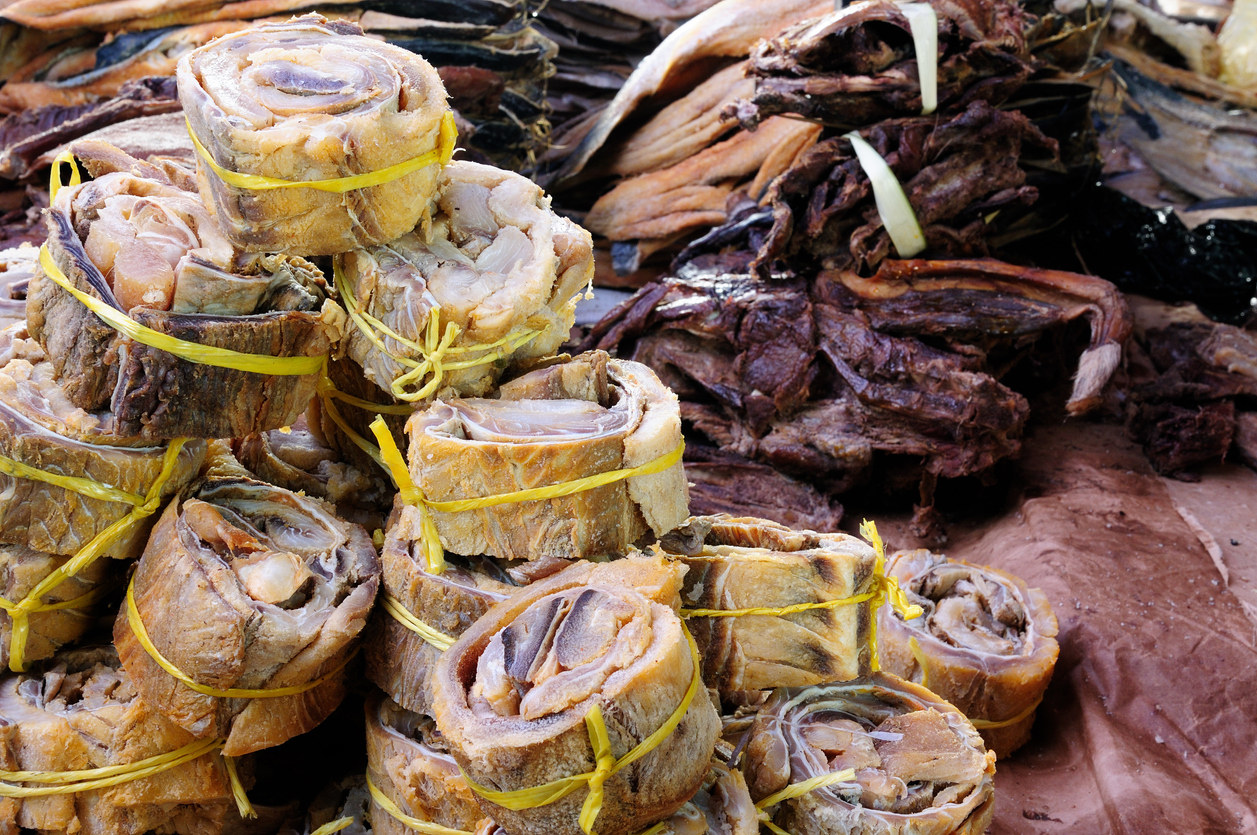From Bushmeat to Luxury Goods: Understanding the Economic Impact of Hunting and Trapping in Nigeria with Wigmore Trading
From Bushmeat to Luxury Goods: Understanding the Economic Impact of Hunting and Trapping in Nigeria with Wigmore Trading
Are you curious about the hidden economic impact of hunting and trapping in Nigeria? Look no further! In this captivating blog post, we delve into the fascinating world of Wigmore Trading, a leading company that has transformed the bushmeat market into a thriving industry for luxury goods. Join us on an eye-opening journey as we explore how this unconventional trade has not only changed lives but also shaped Nigeria’s economy in unimaginable ways. Brace yourself for mind-boggling insights and prepare to be amazed by the untapped potential lurking within these uncharted territories!
Introduction to hunting and trapping in Nigeria
Introduction to Hunting and Trapping in Nigeria:
Hunting and trapping have been a part of Nigerian culture for centuries, with its origins tracing back to traditional methods of obtaining food and resources. However, in recent years, hunting and trapping have evolved from being solely a means of subsistence to an economic activity that contributes significantly to the country’s economy.
Nigeria is home to diverse wildlife species, making it a popular destination for hunters and trappers from all over the world. The country’s natural habitats are abundant with various game animals such as antelopes, monkeys, wild pigs, and birds, which are prized for their meat, skin, fur, feathers, and other body parts. These valuable commodities are used for both local consumption and international trade.
In Nigeria, hunting can be categorized into two types – subsistence hunting and commercial hunting. Subsistence hunting is still prevalent in rural areas where people rely on wild animals for food and basic needs. On the other hand, commercial hunting involves organized efforts by professional hunters who target specific species to meet the demands of the market.
Trapping is another traditional method of capturing wild animals that has gained popularity among Nigerians due to its effectiveness in catching elusive creatures such as rodents or small mammals. It involves setting up traps made from locally available materials like ropes or wires to entangle or crush animals that wander into them.
The economic impact of hunting and trapping in Nigeria cannot be overstated. According to a report by the World Wildlife Fund (WWF), the illegal trade of bushmeat accounts for 80% of all wildlife trade in West Africa alone. This significant demand for wildlife products drives hunters and trappers to continue their activities despite regulations put in place by authorities.
One major factor contributing to this demand is Nigeria’s growing population coupled with increasing urbanization leading to higher disposable incomes amongst citizens. This phenomenon has created a lucrative market for luxury goods made from exotic animal products, such as ivory carvings, crocodile skin handbags, and python leather shoes. These products are often sold at high prices in international markets, making them appealing to hunters and trappers who can sell their catch for a substantial profit.
Hunting and trapping have played a significant role in the Nigerian economy for centuries. However, with the increasing demand for luxury goods made from wildlife products, it is essential to strike a balance between economic gain and conservation efforts to preserve Nigeria’s rich biodiversity for future generations. In the following sections of this article, we will delve deeper into the economic impact of hunting and trapping in Nigeria and how Wigmore Trading is contributing to sustainable practices in these industries.
History and cultural significance of hunting and trapping in Nigeria
History and Cultural Significance of Hunting and Trapping in Nigeria
Hunting and trapping have been a part of Nigerian culture for centuries, with a rich history and cultural significance that continues to shape the country’s economy. In pre-colonial times, hunting was primarily used for subsistence purposes, providing food for local communities. However, with the arrival of European colonizers in the late 19th century, hunting began to take on a more commercial aspect.
During colonial rule, game reserves were established by the British authorities to protect certain species from extinction due to overhunting. This led to a decline in traditional hunting practices and an increase in poaching as many Nigerians relied on hunting as a means of survival. Despite these regulations, hunting remained an integral part of Nigerian culture and played a significant role in their social and economic activities.
In traditional Nigerian societies, hunting is seen as a rite of passage for young men who prove their bravery by successfully capturing or killing wild animals. It is also deeply rooted in spiritual beliefs, with hunters often performing rituals before embarking on hunts to seek blessings from ancestral spirits. This demonstrates the cultural significance of hunting as it connects individuals to their heritage and traditions.
The diversity of Nigeria’s landscape has contributed significantly to its reputation as an ideal location for hunting and trapping. The country boasts vast savannas, rainforests, wetlands, and mountains where various species thrive. This has attracted both local and international hunters who come seeking adventure or exotic trophies.
Aside from its cultural importance, hunting also holds economic value in Nigeria. The trade-in bushmeat provides employment opportunities for many rural communities who rely heavily on this industry. According to Wigmore Trading Company Ltd., over six million people are involved directly or indirectly in bushmeat trade across West Africa.
Furthermore, the exportation of exotic animal skins obtained through trapping has become lucrative business ventures for some Nigerians. These luxury goods, such as crocodile and python skins, are in high demand globally and can fetch high prices in international markets.
However, the economic impact of hunting and trapping is not without its challenges. Overhunting and illegal poaching have led to a decline in certain species’ populations, threatening the delicate balance of Nigeria’s ecosystem. This has prompted government interventions through stricter regulations and conservation efforts to preserve endangered species.
Hunting and trapping have deep historical roots in Nigerian culture and continue to play a significant role in their economy. While it has faced its fair share of controversies, this industry remains an essential aspect of their heritage that must be protected for future generations.
Economic impact of hunting and trapping on local communities
The economic impact of hunting and trapping on local communities in Nigeria is a complex issue that has been debated for years. On one hand, it provides a source of income for many people living in rural areas where alternative job opportunities are scarce. On the other hand, there are concerns about the sustainability of these practices and their long-term effects on both wildlife populations and the local economy.
One key aspect to consider when examining the economic impact of hunting and trapping is the trade in bushmeat. Bushmeat refers to wild animals hunted for food, which is a common practice in many parts of Nigeria. This trade is estimated to be worth millions of dollars annually and serves as an important source of income for hunters, traders, and their families.
In addition to providing direct income from selling bushmeat, this trade also supports numerous related industries such as transportation, processing facilities, and markets. In some cases, entire villages may rely on bushmeat trading as their main source of income.
However, there are concerns about the sustainability of this practice as it often involves overhunting and targeting endangered species. This can lead to a decline in animal populations and ultimately harm traditional livelihoods that depend on them. Moreover, while bushmeat may provide immediate financial benefits, it does not offer long-term stability or potential for growth.
Apart from the bushmeat trade, trophy hunting has also become popular among foreign tourists seeking exotic game trophies such as lions or elephants. While this activity brings significant revenue to local communities through licensing fees and hunting packages sold by tour operators like Wigmore Trading Company Ltd., there are ethical concerns regarding its impact on wildlife conservation efforts.
Trophy hunting can have positive economic impacts if managed properly with strict regulations in place. It can generate revenue for conservation efforts while simultaneously providing employment opportunities for locals working as guides or support staff. However, if not regulated carefully, trophy hunting can deplete animal populations at an unsustainable rate and harm the local economy in the long run.
While hunting and trapping may provide immediate economic benefits to some local communities in Nigeria, it is essential to consider its impact on wildlife populations and the sustainability of such practices. Regulations and proper management are crucial for ensuring a balance between economic gains and conservation efforts, ultimately benefiting both humans and wildlife.
Wigmore Trading: A leading supplier of hunting and trapping products in Nigeria
Wigmore Trading is a reputable supplier of hunting and trapping products in Nigeria, offering a wide range of high-quality equipment to meet the needs of hunters and trappers across the country. With over 10 years of experience in the industry, Wigmore Trading has established itself as a leading provider of these products, catering to both commercial and recreational hunters.
One of the main reasons for Wigmore Trading’s success is their commitment to providing top-notch products that are tailored to the specific needs and preferences of Nigerian hunters and trappers. They understand that hunting and trapping are an integral part of Nigerian culture, with many communities relying on these activities for sustenance and livelihood. As such, they strive to offer a diverse selection of products that cater to different types of hunting and trapping methods used in Nigeria.
From traditional methods such as snaring and bowhunting to modern techniques like rifle hunting, Wigmore Trading has all the necessary tools for every type of hunter. Their product range includes snares, traps, bows, arrows, rifles, ammunition, camouflage gear, and more. All their products are sourced from trusted manufacturers known for their quality materials and craftsmanship.
In addition to supplying top-of-the-line equipment, Wigmore Trading also prides itself on its exceptional customer service. The team at Wigmore understands that every hunter or trapper has unique requirements when it comes to their gear. Therefore they take great care in understanding each customer’s needs so they can recommend the best products for them. Their knowledgeable staff is always available to provide expert advice on product usage or any other queries customers may have.
Moreover, Wigmore Trading goes above and beyond by offering after-sales support services such as repairs and maintenance for purchased items. This not only ensures that customers get the most out of their purchases but also builds trust between them and Wigmore trading.
By being a reliable supplier in Nigeria’s hunting industry over the years, Wigmore trading has also contributed significantly to the country’s economy. By providing high-quality products, they have helped boost local businesses and provided employment opportunities for many Nigerians. Additionally, by promoting safe and responsible hunting practices, Wigmore Trading has played a vital role in conservation efforts in Nigeria.
Wigmore Trading is much more than just a supplier of hunting and trapping products in Nigeria; it is a trusted partner for hunters and trappers across the country. With their commitment to quality, excellent customer service, and contribution to the Nigerian economy, Wigmore Trading has solidified its position as a leading supplier in this industry.
How Wigmore Trading supports sustainable hunting practices
Wigmore Trading is committed to supporting sustainable hunting practices in Nigeria. We believe that responsible and ethical hunting practices are crucial for the preservation of wildlife and natural resources, as well as for the economic stability of local communities.
One way we support sustainable hunting is by working closely with our suppliers to ensure they adhere to strict regulations and guidelines set by Nigerian authorities. This includes obtaining proper permits, following seasonal restrictions, and using non-invasive techniques such as snare-less trapping or selective harvesting methods.
We also prioritize working with hunters who have a deep understanding and respect for the environment. These individuals have often grown up in rural areas where hunting has been a traditional means of survival for generations. As such, they have an intimate knowledge of their surroundings and are able to hunt in a way that minimizes impact on the ecosystem.
In addition, Wigmore Trading actively promotes education and awareness about sustainable hunting among local communities. We believe that engaging with these communities is crucial in order to foster a sense of responsibility towards preserving their natural resources. We work closely with community leaders to provide training on sustainable hunting practices, as well as alternative livelihood options that can reduce reliance on bushmeat trade.
Moreover, through our partnership with conservation organizations such as the Wildlife Conservation Society (WCS) Nigeria, we support initiatives aimed at protecting vulnerable species from overhunting. For example, we participate in programs that monitor endangered species populations and identify key areas for conservation efforts.
At Wigmore Trading, we also recognize the importance of addressing the demand side of the bushmeat trade in order to effectively tackle unsustainable hunting practices. That’s why we work towards promoting alternative sources of protein such as poultry farming or fishery projects. By providing economic opportunities beyond bushmeat sales, we hope to reduce pressure on wild animal populations while still supporting local livelihoods.
At Wigmore Trading we understand that responsible use of wildlife resources is essential for both environmental and economic sustainability. We are committed to promoting sustainable hunting practices in Nigeria through our partnerships, education initiatives, and support for alternative livelihoods. By working together with local communities and conservation organizations, we believe that we can create a future where both humans and wildlife can thrive.
The role of technology in modern hunting and trapping methods
The practice of hunting and trapping has been a part of human life for centuries, providing food, clothing, and other resources. However, with the advancement of technology in modern times, the methods used in these activities have significantly evolved.
One aspect where technology has made a significant impact is in improving efficiency and accuracy in hunting and trapping. In the past, hunters had to rely on their physical abilities and instincts to catch their prey. Today, they can use advanced tools such as firearms, bow and arrows equipped with precision sights, and traps with sensors or triggers that ensure a successful catch.
Furthermore, technological advancements have also made it possible for hunters to track their prey more effectively. With the use of GPS devices and satellite imagery, hunters can now map out potential animal habitats and plan their hunts accordingly. This not only saves time but also reduces the risk of getting lost or encountering dangerous animals.
In addition to aiding hunters directly, technology has also played a crucial role in conservation efforts. The use of drones equipped with thermal cameras allows authorities to monitor wildlife populations from above without disturbing them or interfering with their natural behavior. This helps identify any declines in population numbers or illegal hunting activities that may be taking place.
Moreover, advancements in DNA analysis have enabled scientists to identify species more accurately through traces left behind by hunted animals. This data can help determine which species are being targeted excessively and require conservation measures.
However, while technology has brought many benefits to modern hunting practices, there are also concerns about its negative impacts on traditional methods of subsistence hunting among indigenous communities. The introduction of guns and other advanced tools has made it easier for poachers to overexploit certain animal populations for profit rather than sustenance.
Despite these challenges, technology continues to revolutionize modern hunting practices positively. It not only helps improve efficiency but also plays a critical role in sustainable management of natural resources by supporting conservation efforts.
Challenges facing the hunting and trapping industry in Nigeria
The hunting and trapping industry in Nigeria has been a significant contributor to the country’s economy for many years. However, this industry is facing numerous challenges that threaten its sustainability and hinder its potential for growth.
One of the main challenges facing the hunting and trapping industry in Nigeria is the decline in wildlife populations. Due to illegal poaching and habitat destruction, many species have become endangered or even extinct. This not only affects the natural balance of ecosystems but also poses a threat to the livelihoods of those involved in hunting and trapping as their source of income dwindles.
Additionally, there are several legal restrictions on hunting and trapping activities in Nigeria. The Wildlife Conservation Act of 1985 prohibits the hunting of endangered species, while permits are required for other forms of hunting and trapping. These regulations aim to protect vulnerable species, but they also create barriers for those who rely on these activities for their livelihoods.
Another significant challenge faced by the hunting and trapping industry in Nigeria is a lack of government support. Unlike other countries where wildlife management programs receive substantial funding from the government, there is limited financial support provided by Nigerian authorities. This results in inadequate resources for conservation efforts and makes it difficult for hunters and trappers to comply with strict regulations.
Furthermore, there is a lack of awareness about sustainable practices among local communities involved in hunting and trapping. Many individuals engage in these activities without knowledge or concern about how their actions impact wildlife populations or ecosystems’ health. As a result, some methods used can be destructive to animal habitats, leading to further declines in population numbers.
In recent times, changing consumer preferences have also posed a challenge to the hunting and trapping industry. With increasing global awareness about conservation efforts, more people are turning away from purchasing products derived from endangered species or wild-caught animals due to ethical concerns.
Economic factors such as fluctuations in market demand can significantly impact hunters’ incomes who rely on selling animal products as luxury goods. This is especially true in the current global climate, where the COVID-19 pandemic has caused a decline in international trade and tourism.
While the hunting and trapping industry in Nigeria has played a vital role in the country’s economy, it faces various challenges that threaten its sustainability. It is crucial for stakeholders to work together to address these issues effectively and find ways to balance economic opportunities with conservation efforts to ensure the long-term viability of this industry.
Future outlook for the industry
The future outlook for the hunting and trapping industry in Nigeria is a complex and multifaceted issue. While the demand for luxury goods made from exotic animal products continues to rise, there is also growing concern for the sustainability of this practice and its impact on both local communities and global biodiversity.
One of the main challenges facing the hunting and trapping industry is the depletion of wildlife populations. As demand for luxury goods increases, hunters and trappers are driven to catch more animals, often using unsustainable methods such as poaching or over-harvesting. This not only puts species at risk of extinction but also disrupts delicate ecosystems and can have long-term consequences on the environment.
Furthermore, with increased globalization and access to international markets, there is an ever-growing competition among traders to supply these luxury goods. This has led to a decline in prices, making it even harder for local traders to make a decent profit from their activities. This economic pressure can then lead to further unsustainable practices as individuals try to increase their yields in order to maintain their income.
However, there are also efforts being made towards sustainable hunting and trapping practices in Nigeria. Organizations like Wigmore Trading are working closely with local communities to promote responsible hunting techniques that prioritize conservation efforts while still providing economic opportunities for those involved in the trade.
In addition, government regulations are being implemented to control hunting quotas and prevent illegal trading of endangered species. These measures not only protect vulnerable wildlife populations but also help regulate market prices by limiting supply.
Moreover, there is a growing awareness among consumers about ethical sourcing and sustainable production processes. As more people become conscious of where their products come from, they are choosing brands that align with their values – creating a shift towards demand for ethically sourced products rather than just cheap items.
While there are certainly challenges facing the future of the hunting and trapping industry in Nigeria, there is also reason for hope. With continued efforts towards sustainable practices and responsible regulation, it is possible to strike a balance between economic growth and environmental conservation. And as consumers become more educated and conscientious, there is an opportunity for a shift towards a more ethical and sustainable market for luxury goods in the future.
Conclusion: The importance of responsible hunting and trapping practices
Conclusion: The importance of responsible hunting and trapping practices
In Nigeria, the hunting and trapping industry has been a long-standing tradition and source of livelihood for many communities. However, with the increase in demand for luxury goods made from exotic animal parts, this industry has shifted towards unsustainable practices that are devastating to local ecosystems and wildlife populations.
As discussed throughout this article, Wigmore Trading is leading the way in promoting sustainable hunting and trapping practices in Nigeria. By working closely with local communities and government agencies, they have successfully implemented measures to ensure that their products are obtained through ethical means.
But why is it so important to practice responsible hunting and trapping? Firstly, it is crucial for preserving biodiversity. Nigeria is home to a vast array of unique species, many of which are already endangered due to habitat loss and other human activities. Irresponsible hunting can cause irreversible damage to these delicate ecosystems by disrupting food chains and threatening the survival of entire species.
Moreover, responsible hunting also benefits local economies. Communities that rely on bushmeat as a source of income often face challenges such as overhunting or depletion of certain species. This not only affects their livelihoods but also disrupts the balance within their communities. By implementing sustainable practices, Wigmore Trading ensures that there is enough game left for future generations while also providing a stable income for local hunters.
Furthermore, responsible hunting can contribute positively towards conservation efforts. In many cases, hunters who are educated about conservation will become advocates for protecting wildlife rather than viewing them solely as targets. This mindset shift can have significant impacts on reducing poaching activities and promoting conservation efforts within local communities.
Practicing responsible hunting and trapping aligns with global efforts towards sustainable development goals (SDGs). Specifically SDG 15 aims at protecting terrestrial ecosystems by promoting sustainable management of forests and halting biodiversity loss. By supporting ethical businesses like Wigmore Trading, we can all do our part in achieving this goal and promoting a more sustainable future for generations to come.
Responsible hunting and trapping practices are critical for the preservation of biodiversity, supporting local economies, promoting conservation efforts, and achieving global SDGs. It is up to all of us to be conscious consumers and support businesses like Wigmore Trading that prioritize ethical and sustainable practices in their operations. Together, we can make a positive impact on the environment while also supporting local communities in Nigeria.








Comments are closed.